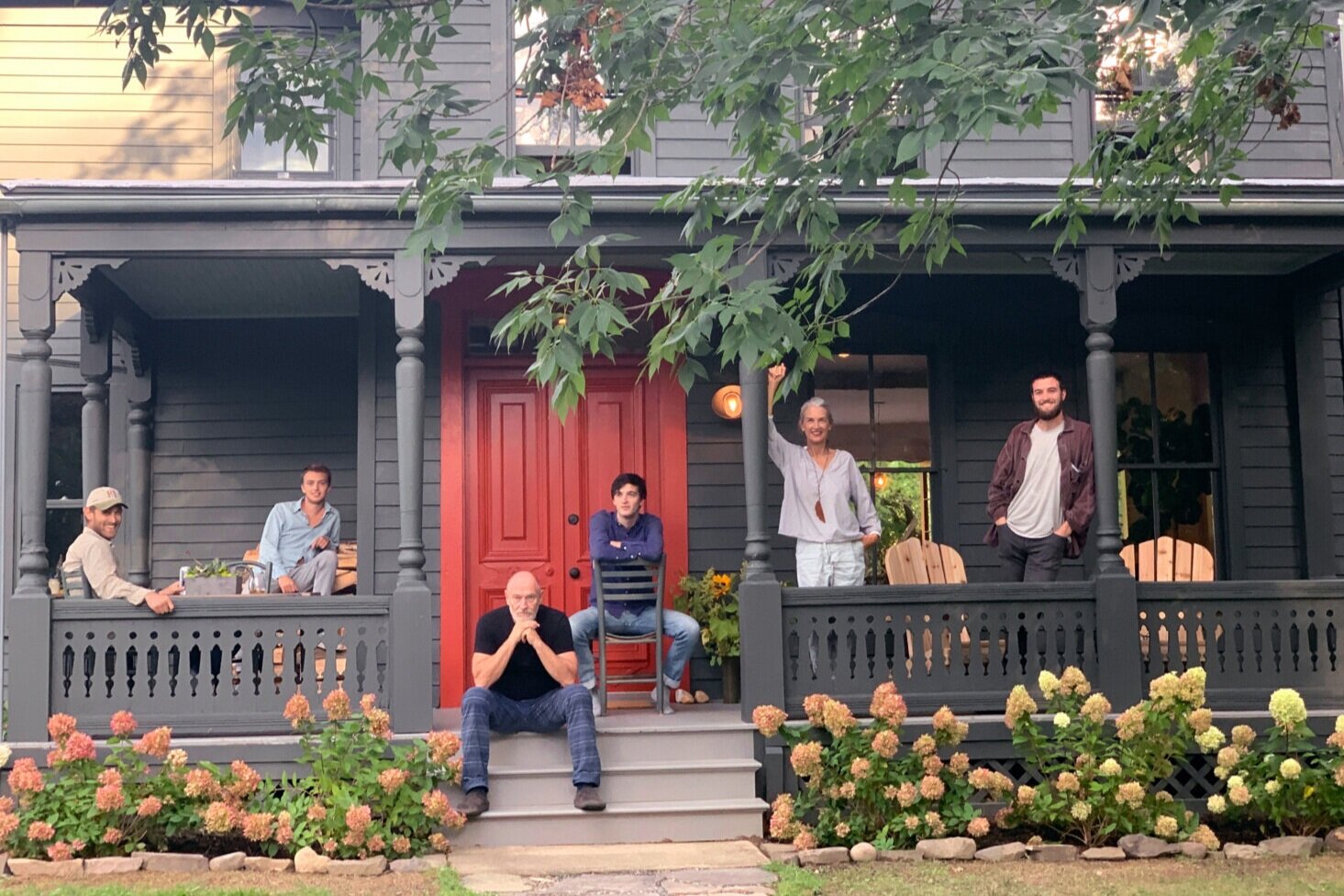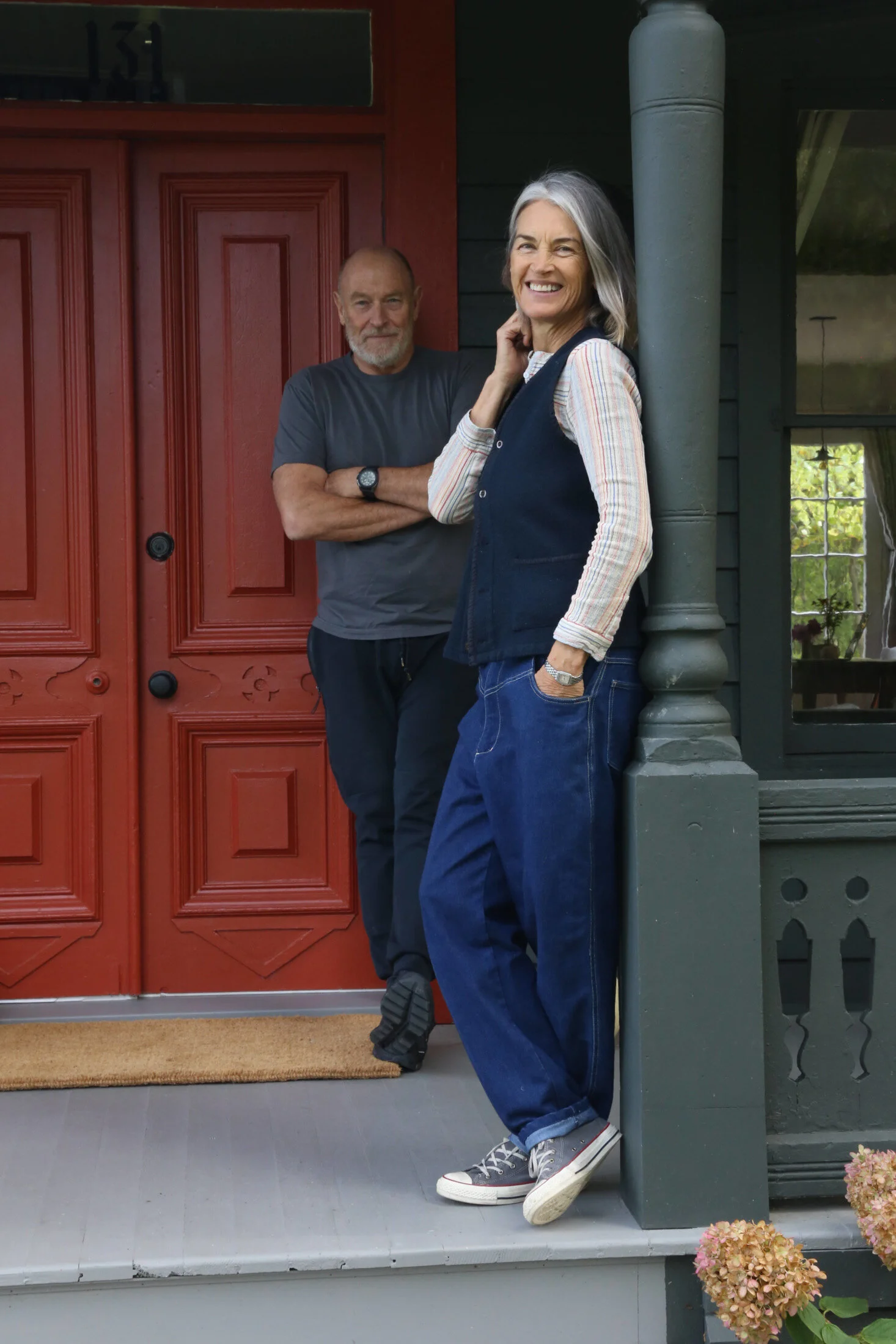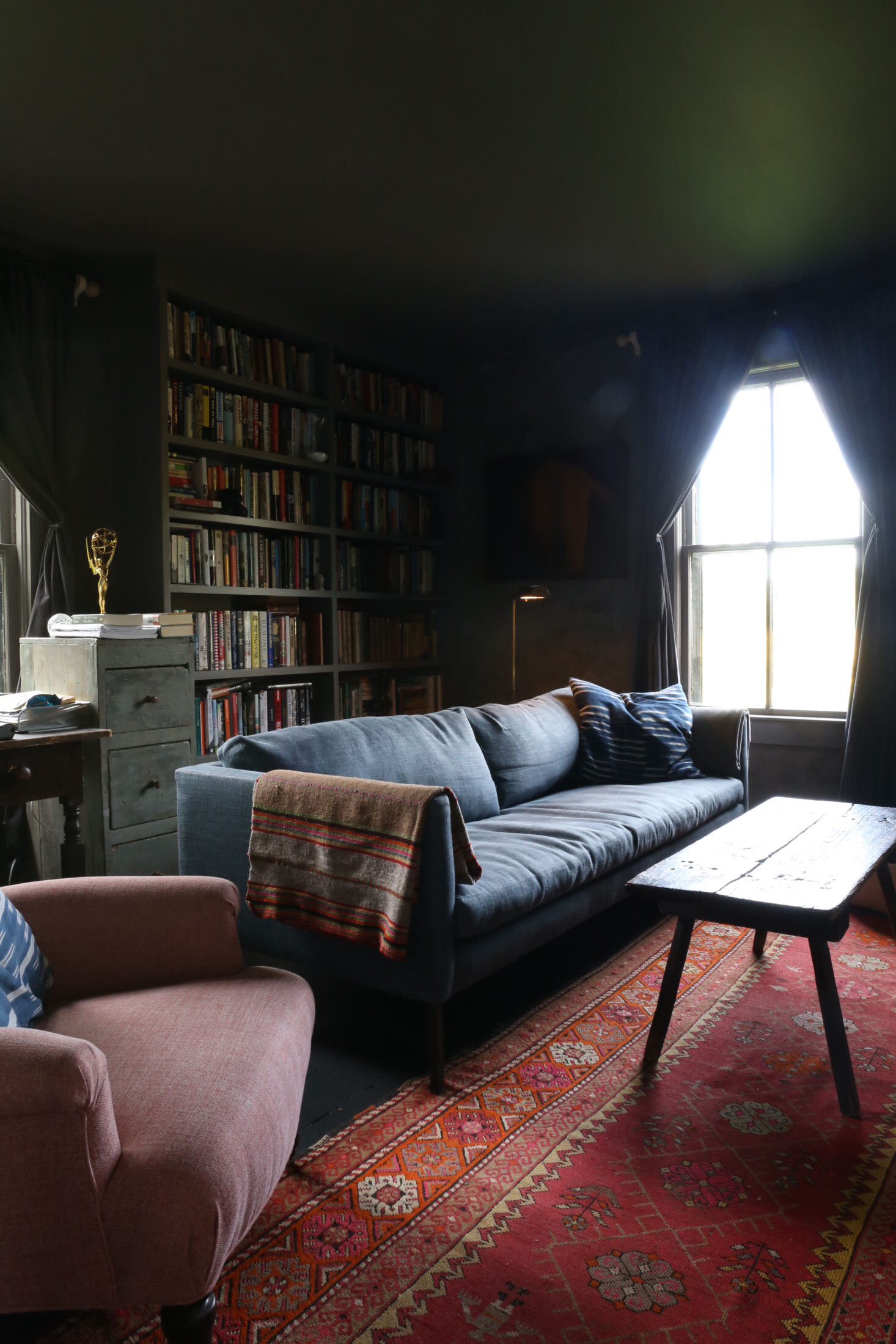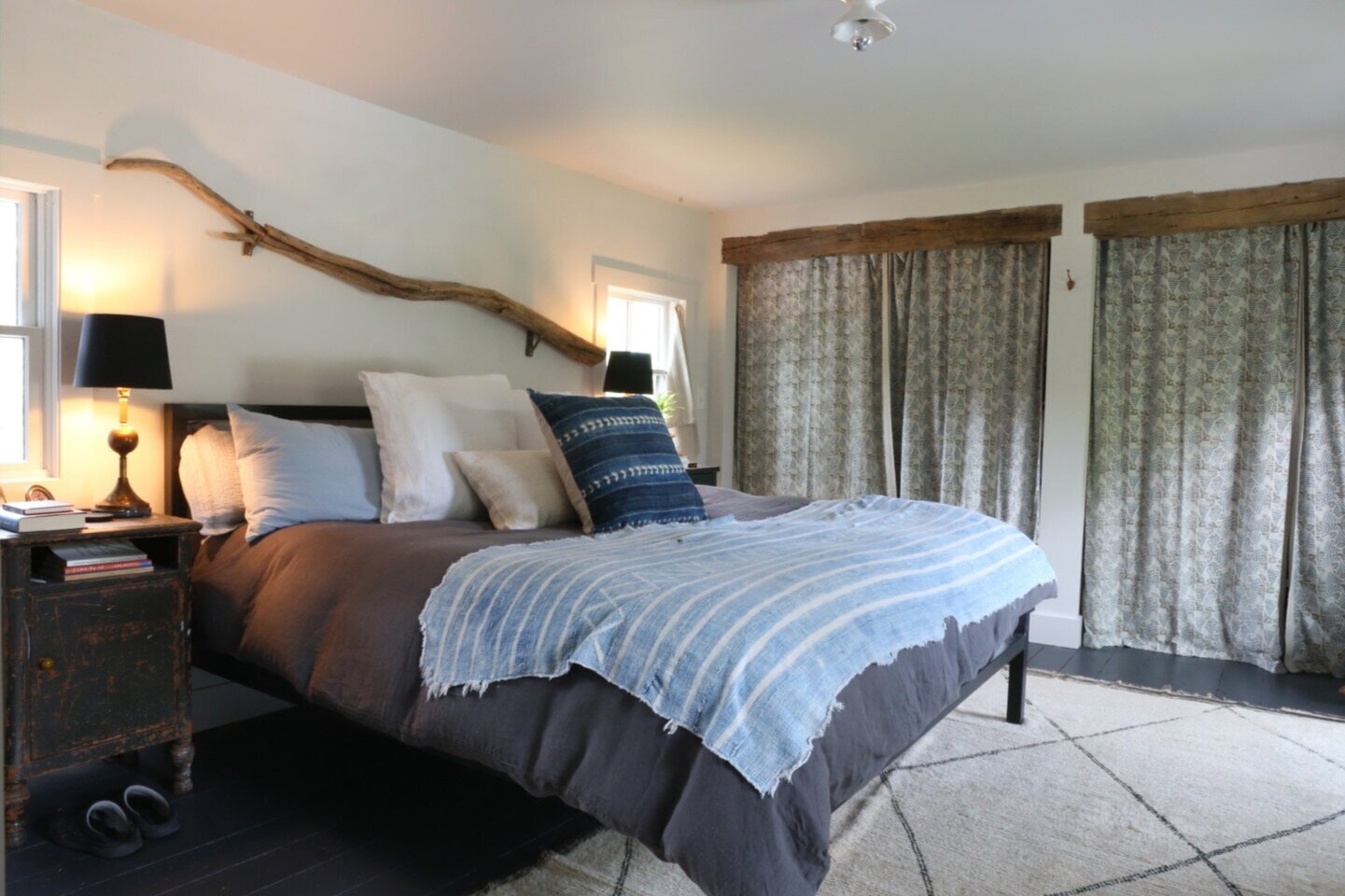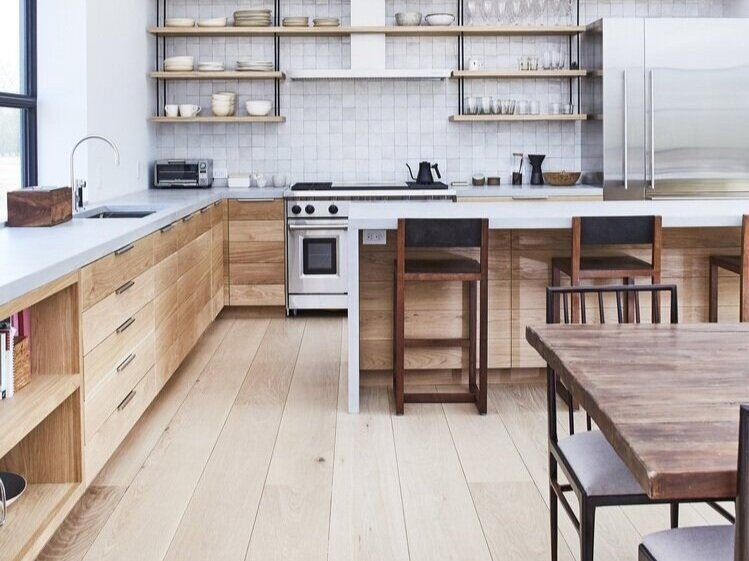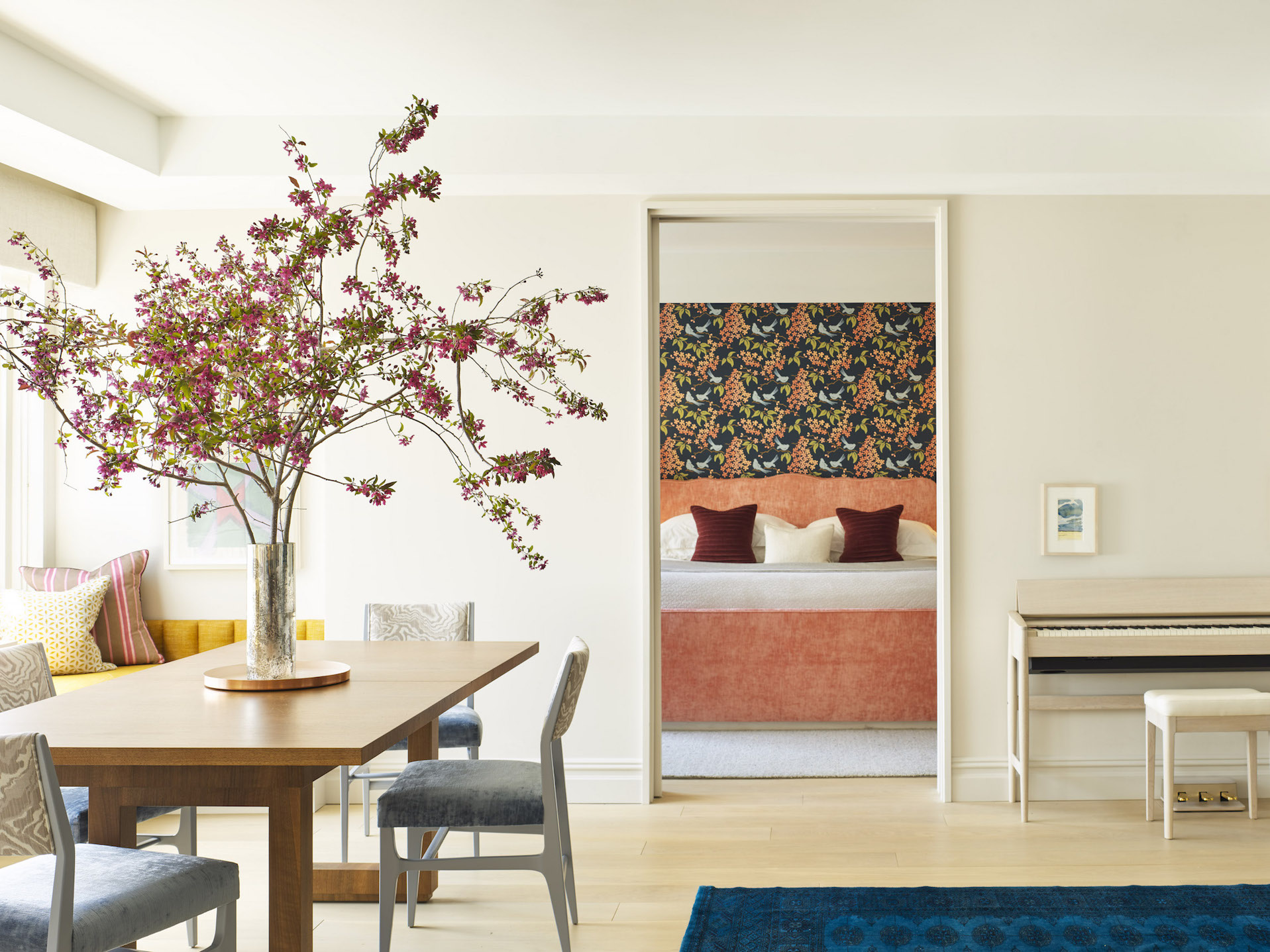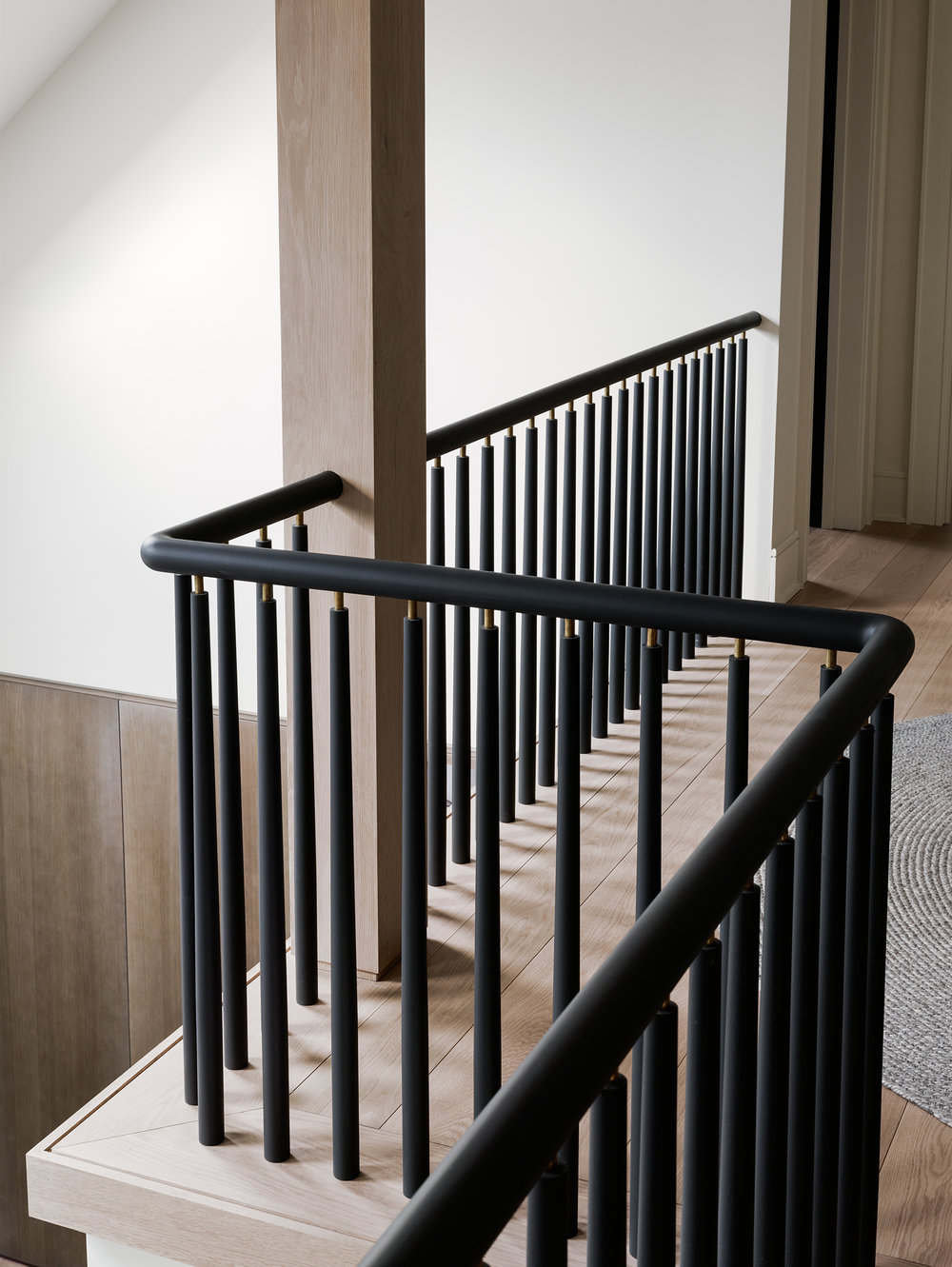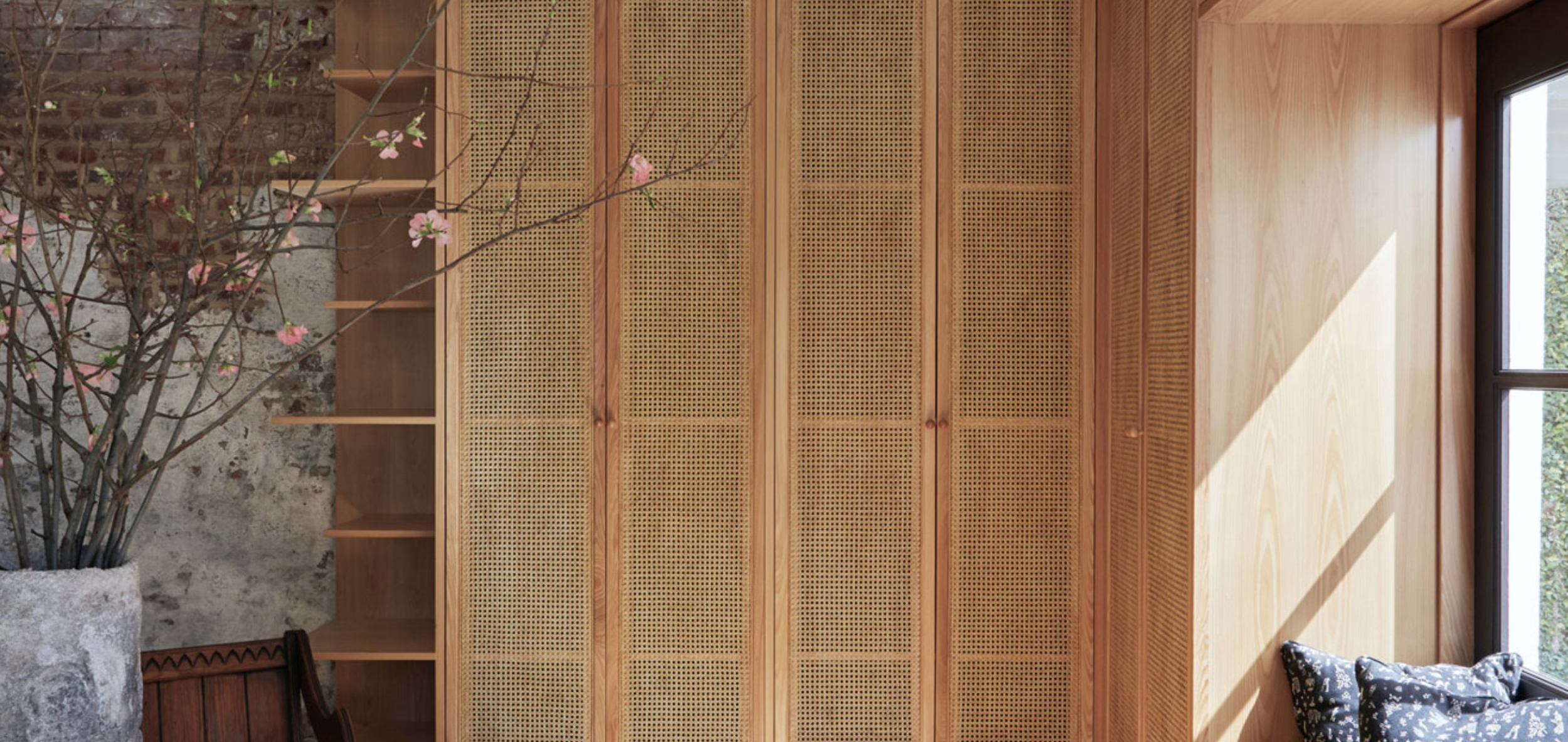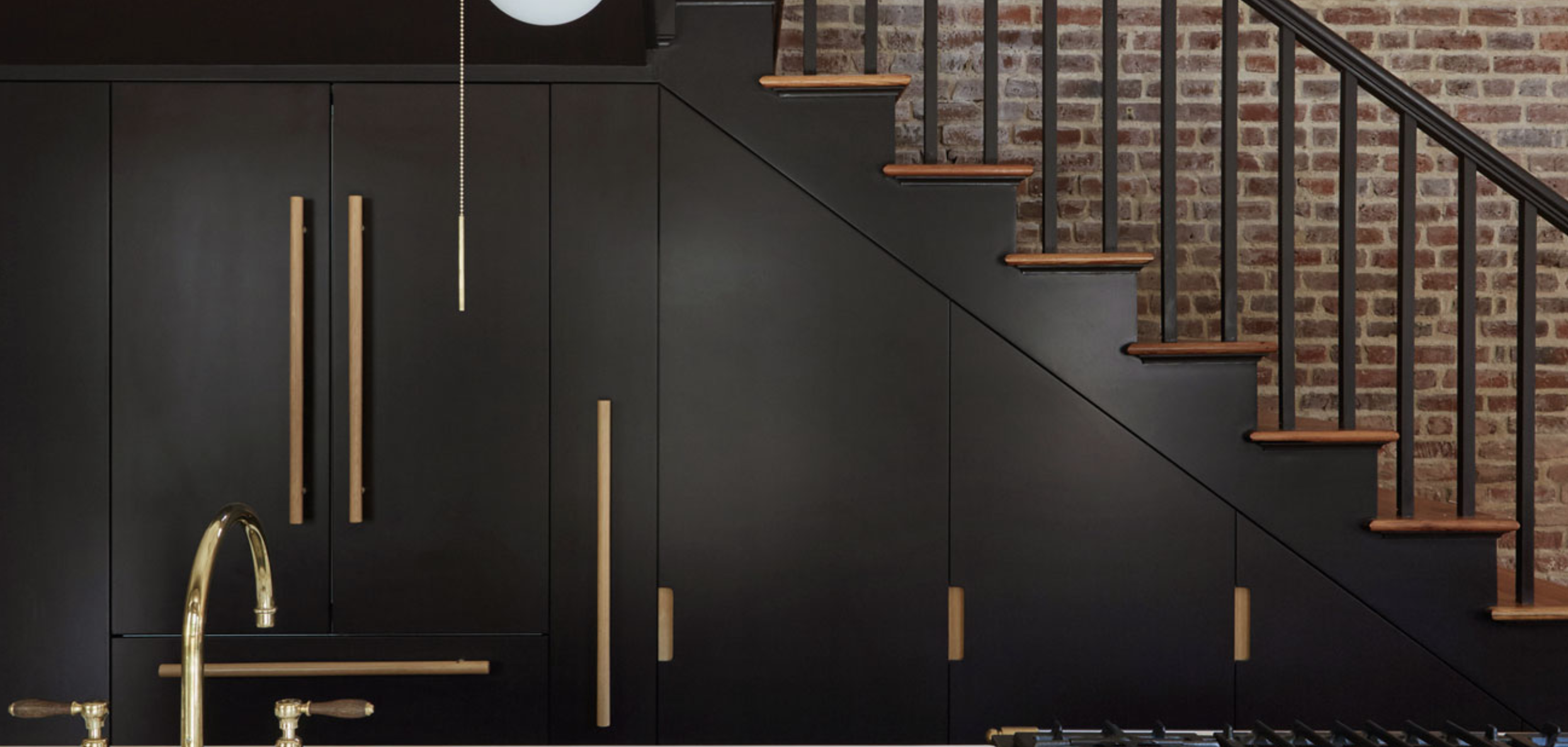Earlier this year, we identified an architectural treasure not far from the Pine Plains Mill: the Federal Style Oliver Bronson House.
Originally built in 1811 as a private residence and later used as a reform school for girls, the Bronson house has sadly fallen into disrepair. But with permission from Historic Hudson, we assembled a team that included our fabricators, installers, photographers, and an inspired stylist. In all, eighteen people over three days helped recreate a world in which The Hudson Company’s flooring—some of it as old or older than the house itself—could exist in a setting full of character and architectural detail.
Special thanks to our friends Colin King, Andrea Gentl, Martin Hyers, and Dani Case.
The Hudson Company’s New Showroom with FAIR Opens May 11th, 2022
The Hudson Company and FAIR are pleased to announce their new shared showroom at 200 Lex, the New York Design Center. Guests are invited to an open house event on Wednesday, May 11th from 3—7 PM.
FAIR and The Hudson Company have a long history of creative collaboration. In 2014, Brad Ford established Field+Supply, an earthy design fair held twice a year in the Hudson Valley featuring furniture, lighting, and accessories. The Hudson Company has participated in Field+Supply for many years, welcoming visitors to explore an evolving collection of sustainably salvaged lumber, antique beams, and custom flooring.
Founder Jamie Hammel realized that Brad Ford was a kindred aesthetic spirit, and in 2016 asked him to design The Hudson Company’s Manhattan showroom. In 2018, Hammel and Ford teamed up again when Ford designed The Hudson Company’s Ridgefield, Connecticut space. The pair also curated an exhibition called "Sitting Still" for NYCxDesign, which celebrated the craft of woodwork through the lens of the humble side chair. This new space at 200 Lex is just the latest in a long series of thoughtful collaborations between Ford and The Hudson Company, with fine materials and skillful design at its center. Visitors will recognize a familiar aesthetic, and delight in encountering new designs, forms, and inspiration.
200 Lexington Avenue
Suite #1601
NY, NY 10016
Tel: (212) 391-8202
info@thehudsonco.com
SCHOTTEN & HANSEN at The Hudson Company
The Hudson Company is pleased to announce our new partnership with the venerable German flooring company Schotten & Hansen, which produces responsibly harvested wood of peerless quality. Now on view at our New York City showroom, the Schotten & Hansen Collection for The Hudson Company combines two distinct legacies in the design world, providing American clients with seamless access to Schotten & Hansen products. This new relationship means access to an expanded range of top quality lumber for flooring, panels and interiors with the service, knowledge, and craftsmanship you already know.
Founder Torben Hansen has described his company as a “mediator between nature and architecture.” Established in 1984, Schotten & Hansen is the premier producer of fine wood for flooring, paneling and interiors in Europe. Based in Peiting, Germany, Schotten & Hansen makes its wood products “for life,” meaning that their wood lasts a lifetime, and that their natural approach to sourcing and finishing wood is as safe as anything you would eat or wear. No solvents or acrylic glues ever touch Schotten & Hansen lumber—the company finds all the ingredients they need in nature, using beeswax, minerals, and oils to color and finish their products. Like The Hudson Company, Schotten & Hansen provides the finest quality wood available to some of the most prominent interior designers and architects in the world. Schotten & Hansen’s project can be found all over the globe. Several recent highlights in New York include the new GOOP Store, the Crosby Street Hotel in SoHo, the Whitby Hotel in Midtown, and numerous residences designed by top architects around the world.
Schotten & Hansen Shrunk Face, European Oak flooring in Driftwood color at Goop Lab, NYC. Photo: Adrian Gaut.
Schotten & Hansen Shrunk Face, European Oak flooring in Oyster Dark color at The Crosby Street Hotel, NYC. Design by Kit Kemp. Photo: Simon Brown.
The partnership between The Hudson Company and Schotten & Hansen means access to a new range of top quality lumber for flooring, panels and interiors with the service, knowledge, and craftsmanship you already know. Schotten & Hansen’s practice of finishing wood by hand yields a product that’s designed to stand the test of time and age beautifully. Torben Hansen believes machines are “no match” for traditional German woodworking techniques. Their wood is the lumber equivalent of haute couture: you won’t find a more luxurious or perfectly finished product anywhere. A tree’s life cycle doesn’t end when it is harvested; if it’s crafted and finished in just the right way, its wood enhances the beauty of an interior and enriches the experience of those who live there for generations to come.
At Home in Germantown, New York, with Amanda Pays, Corbin Bernsen & Reclaimed Beams from The Hudson Company.
Above: Corbin and Amanda and sons at their new residence (the photo was taken by their oldest son’s girlfriend and became this year’s holiday card).
Actor Corbin Bernsen and his wife Amanda Pays, an interior designer, are seasoned serial renovators. According to a recent article in Remodelista, they’ve lived in 25 houses over their three-decade marriage. (Bernsen even has a film production company called “Star Handyman.”) The couple recently bid farewell to Los Angeles, moved east, and put down roots in the Hudson Valley, where changing seasons and snowfall are giving the family—who were used to sunshine and palm trees—a novel experience that they seem to relish. They bought an 1880s farmhouse in Germantown, NY that needed a gut renovation, but they’ve preserved as many original details as they could, and added in some selective antique touches.
Above: “We went down to the studs and nothing else,” says Corbin of the 1,700 square foot interior. “This is the equivalent of a bionic house.” Explains Amanda: “We replaced or added HVAC, all plumbing, all electric, insulation, new drywall, bathrooms, and the kitchen.”
The couple both come from renovator families: Pays’ father bought and fixed up old properties in southeast England where she grew up, and Bernsen became a skilled carpenter by learning from his uncle and his mother. To give their 1,700 square foot farmhouse a more open floor plan, they removed some walls on the first floor, and installed antique beams to add some rustic beauty to the interior as well as structural support where needed. To find the beams, they turned to their new neighbors, The Hudson Company. The beams they chose are from our collection of Reclaimed Hand Hewn Beams which are salvaged from barns and farmhouses in the Hudson Valley and Canada. Each one is different, but many of them share lovely features: mortise holes, pockets and check marks, which give this farmhouse interior a tactile connection to its architectural heritage. And in Pays and Bernsen’s beautifully restored home, they look like they've always been there.
Above: Corbin’s guitar stands in a corner of the guest room. The reclaimed beams used throughout came from The Hudson Company.
Above: The tub, along with three sinks, came from Hoffman’s Barn in Redhook, NY.
Above: The living space opens to a roomy dining area and kitchen. The cabinets are Ikea—with Ikea’s vertical-grooved Hittarp fronts in an off-white lacquer that Amanda painted herself. “This isn’t something they recommend but it worked well: even the chipping looks authentic. I used a heavy Kilz primer—no sanding—followed by two coats of Benjamin Moore Chelsea Gray in a satin finish.”
Above: The couple—he’s 65, she just turned 60—say they love their new surroundings and plan to stay upstate.
Above: The moody back room with new built-in bookshelves is the library/TV room and Corbin’s home office.
Above: The master bedroom has a conceptual headboard: Amanda dragged the driftwood home from a walk along the Hudson River.
Read the full piece on REMODELISTA.
The Hudson Company featured in the nyt
Elizabeth Roberts, and architect based in Brooklyn, NY., installed natural-looking white-oak flooring from The Hudson Company in the kitchen of a TriBeCa home.
Photo by Kyle Knodell
A house by Di Biase Filkoff Architects in Millbrook, NY., live-sawn white oak floors with plenty of character, from The Hudson Company. Photo by Gentl and Hyers.
In a farmhouse in Dutchess County, NY., Larson Architecture Works installed reclaimed heart-pine flooring from The Hudson Company. Photo by William Cole.
“The floor is the base upon which all other decisions are built.”
- Tim McKeough, NYT
A house by Roger Ferris and Partners in Bridgehampton, NY., has flat-sawn white oak floors by The Hudson Company. Photo by Gentl and Hyers.
Design writer and New York Times contributor, Tim McKeough, writes about the complex decisions that face renovators when it comes to choosing the right kind of hardwood flooring. The Hudson Company founder Jamie Hammel is quoted extensively in the piece, on the topics of grain appearance (“tiger stripes” and “cathedral pattern”), lumber grading, which classifies pieces of wood according to how many or few knots they have, the difference between solid and engineered wood, and the pros and cons of various finishes.
The article will appear in the print edition of the New York Times on January 12th.
Read the full article here
INSTALLATION IN FOCUS: DOWNTOWN IN COLOR BY HALLIDAY GREER, 8th STREET, MANHATTAN
Interior design by Halliday Greer, Capella, Flat Sawn flooring by The Hudson Company, Photo by Annie Schlechter
Interior and architectural designers Andrew Halliday and David Greer focused on chroma and pattern while thinking about their design for this bright and color bathed residential renovation in lower Manhattan.
Early in the process, the designers and owners were aligned in wanting to use a light colored floor to amplify the brightness of the space without competing with the rest of the colorful elements of the interior. They selected Capella, Flat Sawn White Oak Select Grade flooring for the project. “We wanted something light, neutral and airy so that it didn’t ever feel dark or too heavy…a clean and contemporary envelope that didn’t compete with the deep colors and patterns on the walls,” said Halliday. “We think it looks terrific.”
Photo by Annie Schlechter, Typographic art by Russell Maret
Photo by Annie Schlechter
The entryway paneling is painted a deep teal blue and creates a wonderful arrival that opens up into the rest of the bright apartment. Bold patterned wallpapers were integrated with other graphic elements to create an environment that truly represented the owners themselves. Russell Maret, a type designer and family member, provided some of his typographic artwork, which adorn the walls with color and symmetry.
“Working with The Hudson Company was a terrific and seamless process,” commented Halliday, “we will use their floors many many times in the future.”
Photo by Annie Schlechter
5 Questions With Architect Sarah Zames of General Assembly
“The Hamptons is an interesting place because it has both a very formal and a more relaxed artistic history. This project was a balance of those two ideas. ”
“Flooring is one of the biggest decisions you make on a project and locking that decision in in the beginning is important in order to keep the other decisions on finishes in line. What I enjoyed about The Hudson Company was the education they brought to the clients.”
Meet Sarah Zames of General Assembly
Brooklyn-based architect Sarah Zames grew up in Northwest Connecticut and has been living and designing in New York City and Los Angeles for the past two decades. After working at several international firms, including Skidmore Owings and Merrill, Tod Williams and Billie Tsien Architects, and Rafael Viñoly Architects, her attraction to the intimacy and scale of residential design led her, in 2010, to start General Assembly - a team of designers and project managers who believe that the details of a home should come from the unique, personal details of the people who live there. In addition to ground up and full renovation projects, GA designs custom lighting and furniture.
Creating A Family Refuge In The Hamptons
In 2018, The Hudson Company worked together with Sarah and GA to provide the custom milled flooring for the ‘Watermill’ project - a complete residential renovation in The Hamptons. Describing the project in their own words, GA says:
“This 3400 square foot home in the Hamptons was gutted down to the studs and rebuilt to create a family refuge from the busy city. We were inspired by the idea of juxtuposing the informality of a traditional country house with the formality that such a grand space required, in order to create something entirely unique, filling the house with our modern interpretation of some very classic details. GA handled all aspects of the process from architectural design to interior design, including all lighting, finishes and several custom designed furniture pieces.”
5 Questions with Architect Sarah Zames
After the successful completion of the Watermill project, which features Hudson Company Bare, White Oak, Flat Sawn floors, we wanted to sit down with Sarah to discuss a bit about her team’s creative process and how they brought the Watermill project to life.
First off, how did you distill the clients' needs / ideas into a clear vision for the design of this project?
The house was designed for four different people (from two different generations) to enjoy. So, we naturally had some differing opinions on style. We wanted to make sure we were able to work the personality of everyone into the design, and took input from everyone involved. One unifying factor between everyone was their love of travel. They often traveled as a family together, and brought back some great art pieces. We made sure to find places to include those in the space.
Clearly there is a focus on natural materials in this project—woods, marble, stone, and plants—can you talk a bit about these choices of materials and why they are a good fit for a, 'family refuge from the city?'
We tend to use natural materials in all of our projects because they are ageless and will not go out of style. For this project, using natural materials was a big part of bringing balance to the design. We combined natural materials with more modern details and, in doing so, we were able to achieve a comfortable elegance.
How did the design of this home fit into or contrast the historic design vernacular of the Hamptons?
The Hamptons is an interesting place because it has both a very formal and a more relaxed artistic history. This project was a balance of those two contrasting ideas. We wanted to maintain some of the formality, but also create a comfortable place to enjoy the weekend. We achieved this balance by creating more modern versions of some traditional details (for example, the paneling on the stairs and family room ceiling), and by bringing in natural materials that would age over time.
It's clear that your team loves the custom details of design (from finishes, lighting, furniture, etc.). Can you talk about this high-level of creative detailing and how this style of work allows you to serve your clients and create unique design?
We feel that the best part of doing a full renovation is being able to have everything designed exactly to your taste. Designing custom details, like the brass tops to the railing balustrade, is one of the best parts of what we do. It means that the homeowners get to enjoy something that is unique to them, and we get to experiment with design and work with really great craftspeople.
Lastly, can you talk about your experience collaborating with The Hudson Company during the Watermill project?
We started working with The Hudson Company very early on in the project. Flooring is one of the biggest decisions you make on a project and locking that decision in in the beginning is important in order to keep the other decisions on finishes in line. What I enjoyed about Hudson was the education they brought to the clients. They respect the fact that [wood flooring] is a big investment and they took the time to educate the clients on the importance of quality flooring.
Learn more about Bare, White Oak, Flat Sawn
Go inside the Watermill residential project here and here.
Project Credits:
Project Type: Residential Renovation
Architecture: General Assembly
General Contractor: Atlantic Collaborative
Photography: Joe Fletcher
The Hudson Company In The Wall Street Journal
From the Wall Street Journal homepage, Dec 17. Project photos by François Coquerel for the Wall Street Journal. Click the image to read the full profile.
A Modern NY Farmhouse Designed by Architect Tom Kundig
We are thrilled to see our recent work for the Millerton, NY home of Daniel and Estrellita Brodsky, designed by Tom Kundig of Olson Kundig Architects, featured in the Wall Street Journal this week.
Read the profile article by Sarah Medford online here.
Project and Press Details
- Project Location: Millerton, NY
- Architect: Olson Kundig
- Contractor: United Construction
- WSJ Magazine story by Sarah Medford
- Photographer: François Coquerel
- Featured Hudson Company Materials: Reclaimed Barn Siding and Reclaimed Oak flooring.
— More photos and project details to come.
Hudson Company Product Installations
To see more commercial, residential, and cultural design installations featuring Hudson Company wood products, visit our online installation gallery.
Join Waterworks And The Hudson Company For A CEU
Installation In Focus: The Carriage House By Workstead, Charleston, SC
The Carriage House, interior design by Workstead, Reclaimed Heart Pine, Vertical Grain flooring by The Hudson Company.
Reclaimed Heart Pine Heads South
Originally from The Hudson Valley, the talented team of designers at Workstead also have a strong presence in the American South—particularly in South Carolina (their work inside Charleston’s Dewberry Hotel is a must see).
For a recent residential project in Charleston known as The Carriage House, The Hudson Company had the pleasure of working alongside Workstead co-founders Stefanie and Robert to select and custom mill some Reclaimed Heart Pine, Vertical Grain flooring. Since the initiation of The Carriage House project, Robert and Stefanie have moved the bulk of Workstead operations back home to New York and we certainly look forward to working together with their team on more projects in the future (including the interiors of their new luxury, multi-unit renovation project in Brooklyn, opening in 2019).
But, until then, enjoy this peek inside the stunning Carriage House project, designed by our friends at Workstead.
Notes on The Carriage House
Detailed project notes from the design team:
“The Carriage House contains 2,000 square feet of livable space distributed over two floors, with three bedrooms and three bathrooms. The first floor living room features two gas fireplaces, originally used for cooking and laundering. A brand new kitchen serves as literal and figurative hearth of the home, with cabinetry tucked under the stairs and a grand island providing the counter around which life revolves. A cozy window seat situated within cypress and caned cabinets compliments the dining room along the south-facing facade.
The second floor features an anteroom for use as an office or library with an adjoining bathroom. A south-facing bedroom with windows on three sides includes a cypress-clad closet, while the large master suite is complete with two closets, laundry, and master bathroom. A balcony overlooks the brick courtyard below with green hedges for added privacy.
At the heart of the Carriage House is connection—with time and place as with collaborators.”
Learn More
Explore More Hudson Company Flooring Installations
Learn More About Reclaimed Heart Pine, Vertical Grain Flooring
See The New York Times Feature Story on Workstead in South Carolina.
Check Out Workstead Full Portfolio and Bespoke Webshop
All Photos below taken from www.workstead.com unless otherwise noted.
Designers and Workstead co-founders Robert Highsmith and Stefanie Brechbuehler. Photo by Kathleen Robbins for The New York Times
“At the heart of the Carriage House is connection—with time
and place as with collaborators.”












